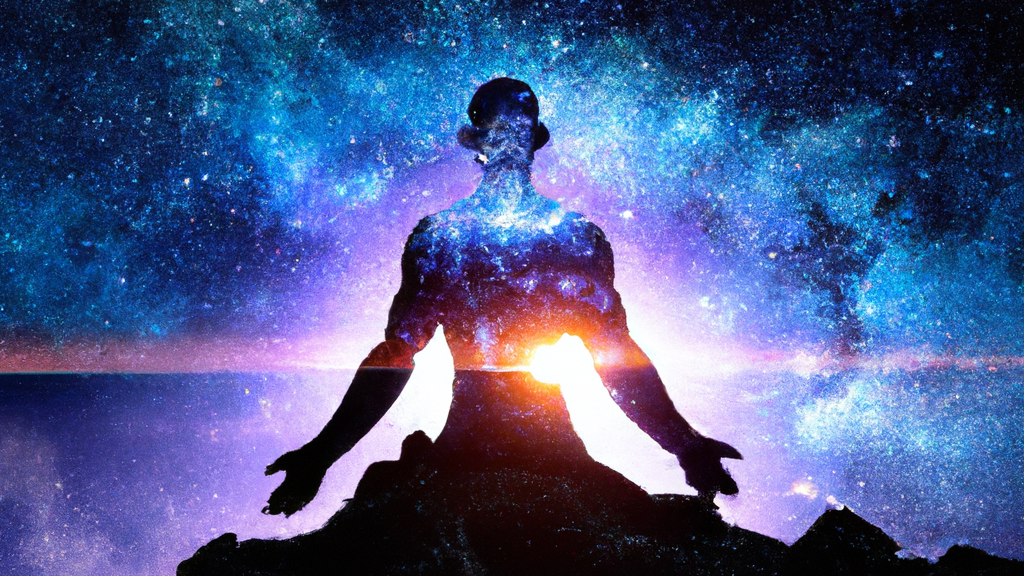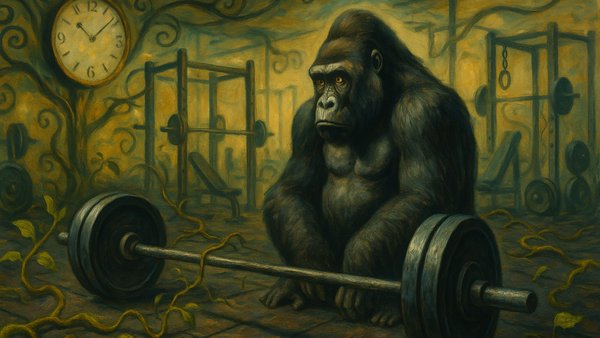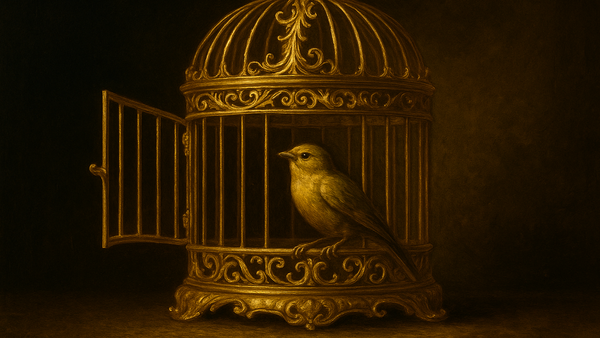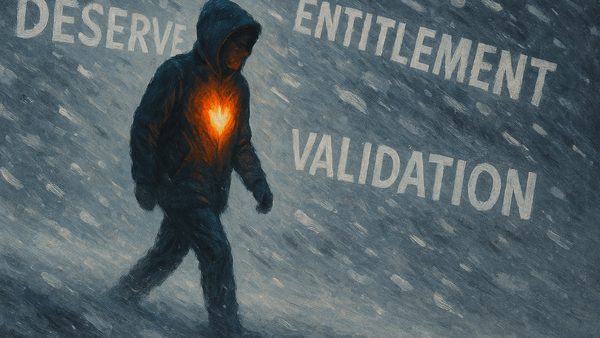The Blessing of Hate Speech
"Hate Speech" discredits a specific form of communication despite of it being one of the vital aspects to personal growth and free expression.

What is more precious, the right to think and say what you believe is truth or the right not to be offended?
It is not entirely transparent and consistent what the new age term Hate Speech comprises. In some countries it is a legal term, in some it is not, and in others it is not even known. In those countries where it is recognized as a legal term, the definitions of Hate Speech vary depending on the jurisdiction. The Cambridge Dictionary defines Hate Speech as
public speech that expresses hate or encourages violence towards a person or group based on something such as race, religion, sex, or sexual orientation (= the fact of being gay, etc.).
Generally speaking, the term describes the expression of a strong dislike, primarily through language and that may or may not carry the intention to cause (emotional) harm, towards the mental or bodily disposition of an individual or a group of individuals. The concept of Hate Speech is commonly used in the context of discussions related to the legal regulation of such forms of communication.
Mitigating Symptoms vs Curing Causes
Basic human behavior has not changed over millions of years. We’re as jealous and as loving, as angry, sad, joyful, disgusted, and anxious as in the times of stone, wood, and cave. The way we flee, fight, protect, mate, express, argue, bargain, befriend, conspire, and conclude has not changed since hunting and gathering used to be our way of life.
Still, the preferred answer of modern societies and politics to something like an uprising of aggressive communication, which we now call Hate Speech, is to suppress it and to silence people by criminalizing an aspect of normal human behavior—instead of investigating the causes to such a behavioral change within the populace.
This is not an adequate means of a democratic, liberal, progressive, open, diverse, and united society. It is not the reaction of a society that is willing to learn and improve itself, that strives for strength and peace, and to set an example on our path of guiding mankind to the next evolutionary stage. It is the reaction of a totalitarian, close-minded, ignorant, anti-democratic, and coward dictatorship.
The proper way to deal with Hate Speech is not to criminalize, threaten, and discredit people in our society, but rather to identify and address the reasons behind the aggression and dissatisfaction. Certainly, there are always people with specific unhealthy mental conditions, including those who might simply enjoy inflicting harm on themselves and others. But within an overall healthy society, this kind of people will always represent no more than an insignificant fraction of the population. A small proportion that does not justify by any means to limit the freedom of expression in general in a society that calls itself free.
Who are the people who are unduly disadvantaged by a restriction on free expression in the context of Hate Speech?
- People who are short-tempered and emotional by nature and don’t know how to communicate more diplomatically.
- People who feel overwhelmed, stressed, or threatened by the burdens of the organizational structure of large modern societies and their impact on social interactions.
- People who are drugged with alcohol, violent pornography, and other media, antidepressants, stimulants like caffeine, sugar or synthetics, or any other form of drug that impacts perception, mood, or behavior.
- People who are struck with unhealthy physical conditions as a result of the modern way of life like obesity, insomnia, or infertility, and project this discomfort outward.
- People affected with conditions that are considered mental illnesses, many of which have not even been diagnosed.
- People who are in fear—for their own existence or their loved ones.
- People who have been (emotionally) abused in childhood and—now that they’re adults—project this abuse on their immediate surroundings.
Most likely, the majority of people fall into one of these categories, the list of which is not even exhaustive. All these people cannot be excluded from the general public discourse and the right to express their truths just because of a temporary or permanent inability to communicate in a predefined form that is considered appropriate.
To criminalize or limit any form of expression of thought or speech is the coward reaction of a society and authority to dispose itself of the need to look at and deal with the uncomfortable voices it bans. The more aggressive and short-tempered the communication within a population becomes, the stronger the indication that administration and governance are not suitable for the society as a whole.
Regulating expression is equivalent to timidly hiding away from the true and important problems we actually face, that lie just beneath the people’s surface communication. We’re not solving these problems that way. On the contrary—we’re breeding a society that is divided and dissatisfied.
Democracy Means Expression
It does not matter if an opinion is aggressive or offensive. At least not within the process of determining truth through public discourse for an entire people. If we want to develop our decisions within a democratic system of state, opinions will be different by definition and therefore evoke strong emotions in people. It is the essence of democracy that the course of the whole is distilled from the many voices of its parts. This is the essential difference, the precise value, compared to monarchy or any other form of government with more totalitarian or absolutist tendencies.
Within a functional democratic framework, the most diverse opinions have to collide, merge, and contribute to the whole, if the system is to operate as intended. Any form of limitation of free expression leads away from democracy and towards a totalitarian system, in which one person or a small group of people dictates what can be said and what cannot. It follows that it is inevitable that some people might feel offended by the opinions of other people. It is human to feel this way. However, if feeling offended affects one’s ability to constructively participate in unrestricted discourse, this is rather a sign of miseducation and that this person is not suitable to work in a parliament; it is not a sign that expression must be restricted. Such a person has not understood the essence of democracy.
The idea that public discourse must serve as a marketplace of ideas is mainly attributed to the British economist and philosopher John Stuart Mill. In On Liberty he wrote in 1859:
The opinion which it is attempted to suppress by authority may possibly be true. Those who desire to suppress it, of course deny its truth; but they are not infallible. They have no authority to decide the question for all mankind, and exclude every other person from the means of judging. To refuse a hearing to an opinion, because they are sure that it is false, is to assume that their certainty is the same thing as absolute certainty. All silencing of discussion is an assumption of infallibility.
This idea implies that Hate Speech is a necessary and unavoidable part of the wider current of free speech, a stepping stone to truth. Simply because of the inhomogeneous way humans communicate with each other—not logically stringent, mechanical, altruistic, and with transparent morality, but as raw expression of individual agenda that is emotionally colored and socially conditioned.
Within this framework, every opinion must be debated in public discourse—no matter its form of expression—to determine what is truth. Every opinion that is prematurely cut from the wider current of free speech circumcises the ultimate truth a people is able to ascend to. No doubt, this comes at a price. Such a process is painful. It continuously challenges our individual mental dispositions—our ego. To facilitate democracy in such a way, the progression of the whole populace is prioritized higher than the transient desires of the individual.
Restricting a particular form of speech or the ability of a particular individual or group of people to express and evaluate statements because one believes those expressions to be offensive is to make the unilateral decision to enforce just a single aspect of the truth—a decision that is detrimental to the collective good and thus, ultimately, to oneself.
This very concept—including much of what falls under the notion of Hate Speech—is constitutionally protected and executed with the required due diligence in just a few countries around the world. One of them is the United States. In many other countries, Hate Speech seems to be widely appreciated by certain interest groups as just another opportunity to further dilute and weaken constitutionally protected free expression.
Besides the obvious implication that the degree to which constitutional rights of free expression are upheld varies greatly in practice from country to country, many jurisdictions pose more or less reasonable limitations to this absolute right. Examples of criminalized speech are blasphemy against Islam in Iran (Constitution, Art. 24), insulting the president in Turkey (penal code, Art. 299), ‘fighting words’ in the United States, or Holocaust denial in Germany (penal code, § 130).
In the United States, for instance, the government can’t directly regulate Hate Speech because the U.S. Supreme Court has repeatedly ruled (see here or here) that laws criminalizing most of what would qualify as Hate Speech in other countries violate the guarantee to freedom of speech as a fundamental right contained in the First Amendment to the U.S. Constitution of 1788, added just two years later with the Bill of Rights.
Congress shall make no law respecting an establishment of religion, or prohibiting the free exercise thereof; or abridging the freedom of speech, or of the press; or the right of the people peaceably to assemble, and to petition the Government for a redress of grievances.
That being said, it is no surprise that it didn’t take long for the uprising concept of Hate Speech to spawn an antagonist: Cancel Culture. A mere product of the universal equation of the universe that strives to balance itself.
Cancel Culture vs Hate Speech
Cancel Culture describes an environment in which people who don’t behave in a way defined as acceptable by other people are ostracized, boycotted, or shunned. The concept arose as a symptom of the strong disapproval of the opposing group—typically people who proclaim the freedom of expression—to the Hate Speech idea. It is also an emotionally loaded term and a symptom of two groups of people that fail to understand each other’s positions and underlying needs and desires.
It is important to note that the expressed desire to cancel someone out because of certain thoughts, opinions, or behavior is in itself an application of the right of free expression in thought, opinion, and speech. Even though it seems paradoxical that the call for the restriction and criminalization of expression in itself is based on the exact same right. As long as such expression does not violate constitutional rights or constitute a criminal offense, such expression is equally important and valuable.
Cancel Culture in itself is, just like Hate Speech, an aspect of the wider current of free speech. Both terms are the product of an utmost primal human trait: violence. In this context, it makes no sense to address the phenomenon of Cancel Culture as unproductive and a threat to tolerance and public discourse, because it is part of a society’s process of approaching truth. Both terms, Hate Speech and Cancel Culture, are not even phenomenons characteristic of our time. They have existed ever since. They just emerged in new clothing just as they’ve always done in regular increments throughout history.
Violence Is Human
It is widely accepted that Hate Speech is one of the prerequisites for mass atrocities such as genocide, especially since and in relation to World War II. This is a misconception. It is precisely not Hate Speech—an aspect of free speech—that leads to atrocities, but the restriction of free speech that is enforced by a particular group of people with a totalitarian mindset that has gained political power. It’s the silencing and criminalization of political opposition and the claim of absolute truth without discourse that paves the way to mass atrocities; not free speech in the first place.
Hate Speech, no matter if it incites violence or not, is in itself an act of violence—at least according to what the general public understands by this term. Just as the opposing act of silencing such expression. It is two groups of people in an emotionally charged state trying to impose their opinions on each other, free from empathy or compassion. Essentially, there is no difference between the person who commits the so-called Hate Speech and the person who fights against it. They both struggle with the processing of their own emotions.
The mere expression of hate itself as “an extremely strong dislike” is not an act of violence per se. Only if it carries an emotional charge of anger, “a strong feeling that makes you want to hurt someone or be unpleasant because of something unfair or unkind that has happened”, which the communicating person is not able to control.
When a person makes the conscious choice to take action to immediately stop the threatening behavior of another outside force, anger becomes the predominant feeling behaviorally, cognitively, and physiologically.[1]
The expression of a strong dislike towards another person’s disposition that is based on unprocessed anger and thus manifests in an act of violence: this is the essence of Hate Speech.
Hate, anger, and violence are all essential parts of being human. Trying to regulate, limit, or criminalize such traits does not make them disappear. On the contrary. It creates friction and tension that sooner or later seeks an outlet for release.
As already noted earlier, different opinions are inevitable and in fact desirable within the democratic discourse. Such discourse is mostly violent, in one way or another—because it is an aspect of human nature. If one cannot stand this violence, which is absolutely acceptable, they shall not participate in the public discourse. But to limit expression just to cushion the group of such people in the security of not being offended in discourse is unreasonable and distorts the ultimate truth of the population.
Political Power, Propaganda, and Emotional Manipulation
Oftentimes, the emotional response of those two groups we just described (people engaging in Hate Speech and people canceling Hate Speech) is intentionally induced by outside forces because it makes people easy to control. Divide and rule. The mixture of politics, media, and activist groups, the toolset of the regulator, is commonly utilized to divide the populace into opposing, less strong groups while portraying the respective opposition as the enemy that must be silenced. This serves multiple objectives, including the following:
- The people’s resources (time, energy, money) are kept occupied and channeled against each other for them to cancel each other out, which keeps them from investing these resources in projects that would serve their own goals.
- The people are kept from joining forces and resources with each other to grow communities that would potentially pose a threat to the established system of the ruling class.
- The fruits of the work of the people can be expropriated more easily through means such as taxation or inflation.
- The opinions, beliefs, values, and perceptions of people can be formed and steered more easily to support the agenda of the ruling class.
- Opposing forces drive necessary changes of opinions, beliefs, values, and perceptions within the populace without the need for overt intervention of the ruling class through means of direct executive force or coercion, thus securing the societal position of the ruling class.
This is precisely what could be observed in the recent so-called COVID-19 pandemic. Regarding the maintenance and facilitation of political power, it did not matter what the individual’s position was, whether one supported measures like curfews and vaccination or not. The crucial aspect was that people became part of one or another smaller opposing group and therefore much easier to control, oppress, and expropriate. The result? Hate Speech by design.
Additionally, Hate Speech is also used as an instrument of political propaganda. In some cases, Hate Speech is considered bad and is therefore prosecuted, in others it is good or simply tolerated, depending on the political narrative it is meant to support. In contrast to the United States, so-called “hate motivated speech” shall be illegal under the law of the European Union (check here for more information about the legal initiative). Nevertheless, throughout the recent COVID-19 pandemic, the triad of politics, media, and activist groups facilitated campaigns in Germany—amongst many other countries—that were characterized by what falls under the definition of Hate Speech against all subjects that did not surrender their free expression of thought to the predefined narrative. A procedure that contradicts the moral standards that were societally and legally stipulated earlier through the concept of Hate Speech. This is not community that is founded on constitutional legality.
Check here, here, here, or here for an online collection or here for a highly appraised book by Jens Wernicke on the subject, all in German language. It is surprisingly difficult to find evidence on the internet for the hate campaigns of 2020, 2021, and 2022 at the time of this writing since a lot of the substance seems to have been deleted, from social media as well as official government websites and reputable journalistic media, e.g. here or here. As a side note, this is a pattern that can be observed once again, at the time of this writing in 2023—right after the depressions of COVID-19—, in the course of the ongoing military conflict between Russia and Ukraine, respectively Russia and the United States together with European administrations on Ukrainian territory. It is truly fascinating that humans seem to learn nothing.
Coming back to the initial question of “what weighs heavier, the right to think and say what you believe is truth or the right not to be offended?”, it is typically the one who desires to restrict the speech of someone else who fails to recognize that a general restriction of expression would also limit their own speech because it might offend the truth of the other party. The failure is to recognize that one can’t have both: freedom of expression and freedom from offense. Therefore, such regulation is typically based on the idea that one opinion is considered the ultimate truth and another one is supposed to be silenced, meaning the right to express shall be regulated for a specific person or group of people but not for oneself—a moral standard that shall not apply to all equally, but to certain positions only. The desire for such limitation of expression is typically rooted in one’s lower levels of consciousness, in shame, guilt, grief, fear, and anger.
Unprocessed emotions and their deliberate manipulation with the objective to divide friends and family, shape behavior, exploit resources, and generate consent for violence, change of law, and large-scale governmental expenditure lie at the core of Hate Speech.
Dealing with Emotions
Speech is one major outlet for emotions. Limiting this outlet castrates people in the release of their emotional charges, which creates even stronger emotional charges around the type of speech that is banned.
More experienced people direct their outlet and emotional release towards non-living objects or a void to give this charge back to the universe’s eternal energetic circular flow. If one practices emotional release with a living being, the emotional charge is passed on to the other human or animal, but it doesn’t dissolve. The other being’s level of consciousness and experience defines whether it is able or not to process that energy within the system of its own body.
We don’t live in an ideal world in which all beings process their emotions instantaneously and controlled. People continue to use each other to release their emotional charges, inflicting harm on those who are less experienced or more vulnerable.
Although it seems unpleasant for most to be exposed to the energetic release of other people, it is far better than legally regulating emotional outlets. Restricting expression leads people to deny, suppress, and develop aversions towards the underlying emotions, like their anger, and increases the likeliness of charged harmful action that goes beyond speech.
The solution is not to regulate expression. The solution is to teach people how to handle their emotions. We are disconnected from our bodies, partially because we are easier to control that way. Most societies simply do not empower their people to learn to deal with themselves.
Neither do we yet intellectually comprehend the full spectrum of processes that happen in our bodies at all times nor are most of us able to listen to their bodies—to sense, feel, and experience, unconstrained by judgment and preconception. Not to mention the ability to consequently process all these experiences in a healthy way and without creating any more attachments—an ability that would set one free. To learn more about the connection of mind and body as well as recommended practices check out the articles below.


More Speech
To approach the root of the matter our societies require emotional education and a certain spiritual awakening in the form of a heightening of the individuals’ awareness, an enabling to comprehend other people’s unaddressed needs, desires, and present emotional states—all things that can essentially be tackled with more speech.
The key is not less speech but more speech—including the expression of hate, an extremely strong dislike. Required is a type of speech that does not project our inner emotional turmoils outward onto the other but such that is founded on introspective observation that helps us experience ourselves in the present moment of communication. Only then can we be both precise and vulnerable to expose our true state of mind and body to which the other person can relate.
Listening with our whole body enables us to comprehend how the other’s emotionally colored speech affects us. Without blind reaction to emotional charges that are passed on to us, we can practice seeking to understand the other’s chain of thoughts and experience of bodily sensations that constantly feed each other and ultimately manifest in their expression.
What quality of emotional charge and which underlying need or desire that is not communicated overtly due to a lack of awareness is directed at us? To build strong, compassionate connections the constant search for an answer to this question is what we need to work on—not on defining what is appropriate and inappropriate to say. Everything that is the truth of the present moment must be allowed to be thought and expressed. Even if it’s harmful.
Example: One of the most heated debates of our time, especially in the first world, is gender identity and its implications on legal rights, social roles, and sexual expression. Lots of different topics touch on this complex such as wage gaps, application of pronouns, governmental subsidies, quota in jobs and education, protection of children, forms of marriage, tax exemptions, the use of public restrooms, or legal rights against other social groups.
What we fail to see is that close to none of these for the most part emotionally loaded discussions actually reflect the true intentions of the different interest groups. The discussions are not truly about wages, pronouns, or which sex is printed on one’s passport. The core aspect of these topics is rather about the human desire to be seen and valued for what we are, to be significant, to be emotionally understood and accepted, to be purposeful and appreciated both for what we can do and what we can’t, for what we enjoy, like and crave and what we don’t—it is mainly about basic human social interaction. Granting the right for a specific tax exemption for lesbian marriages doesn’t address the underlying core need.
Just because we’re now free to choose the pronoun other people are legally required to use when addressing us doesn’t mean that they understand our emotional struggles and accept and see us for what we are. It just means we conquered the right to choose our pronouns.
The inevitable consequence is that sooner or later realization strikes that the actual need or desire is still unsatisfied. The supposed solution? More activism, more regulation, and more emotional charge.
Coming Together
If you find yourself accused of Hate Speech, analyze in a moment of calmness whether the accusation is accurate or the Hate Speech concept is merely used to repress your expression of free thought. If you find the accusation to be valid, try to tone down your voice next time you state your opinion. Realize that people tend to not respond in your favor or even listen to the actual content of your words if your behavior is generally aggressive. Additionally, explore which needs and desires lie beneath the surface topic that stir your emotions and observe which thoughts accompany them. Instead of just unloading your emotional burden on the other person, try to formulate more precisely what it is that moves you so deeply.
If you find yourself wanting to regulate or sanction people that “commit Hate Speech”, remember that the emotional struggle that comes attached to the communication can be the symptom of many unresolved issues, most of which are not primarily the other person’s fault. Realize that you have your own emotional struggles with certain topics or situations. The way people communicate is nothing but a reflection of the overall health of the entire society. Help and encourage other people by asking them to explore and expose their deeper unmet needs—their actual pain points—and by telling them that you’re willing to listen. Practice compassion, not animosity, for we’re all united in being human.
Embracing Offense
I have been offended by a lot of people in my life. From seemingly innocent jokes over bullying and aggression to tantrums and severe insults. But my own expressive behavior has most likely also offended other people at times, in one way or another, some of it unconsciously but some consciously and intentionally.
For as long as I can remember I was suffering from the emotional charge other people imposed on me, that I found myself to be particularly receptive to. I’ve been experiencing them as extremely intense and unbearable. It took me a long way to gain the ability to manage my own emotional state as well as the impact other people’s emotions have on me. Ultimately, though, my suffering was my choice.
I realized that I prefer the unfettered truth of the emotional moment over a person not expressing their truth because laws or societal conventions forbid it. Otherwise, I wouldn’t know anymore who to trust. How could I trust anybody if the expression of their thoughts is regulated? How could I distinguish friend from foe—someone who wants good for me from someone who wants bad for me? In a world of regulated speech, both would express the same, while their true thoughts and intentions would remain obscured. I realized that much of what falls under the concept of Hate Speech that is directed towards me is a blessing. It is painful at times, undoubtedly, but the benefits far outweigh the pain. Emotions tell me the person is true. They reveal the other’s passions and pain points. They tell me I am significant enough to that person to bother expressing their truth to me. Raw speech creates a real connection.
Truth is the highest good—the truth of the individual as it changes from moment to moment. A different opinion from our own is a blessing because it challenges our perception of the world and leads us to growth. The more radical and emotional that opinion is the more intense the connection to the other person and the stronger the impulse for us to question, process, rethink, and evolve.
Don’t refuse speech of others, no matter in which form, just because you’re too comfortable being challenged.
Did you enjoy this article? Please consider contributing to this publication’s financial freedom.
Flows straight into content, not coffee.
Raymond DiGiuseppe, Raymond Chip Tafrate, Understanding Anger Disorders, Oxford University Press, 2006, pp. 133–159. ↩︎





